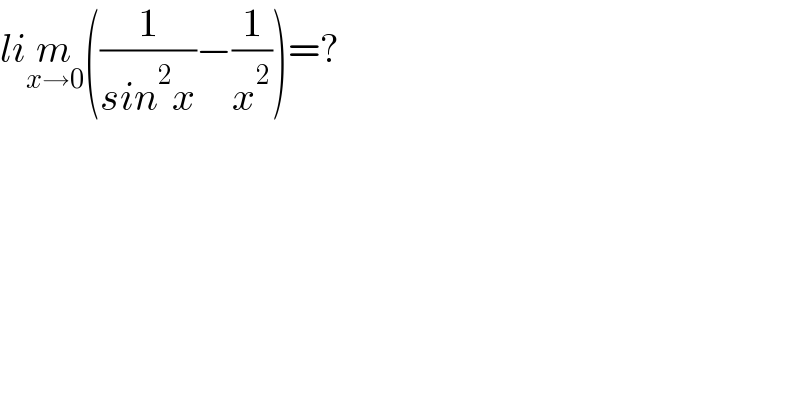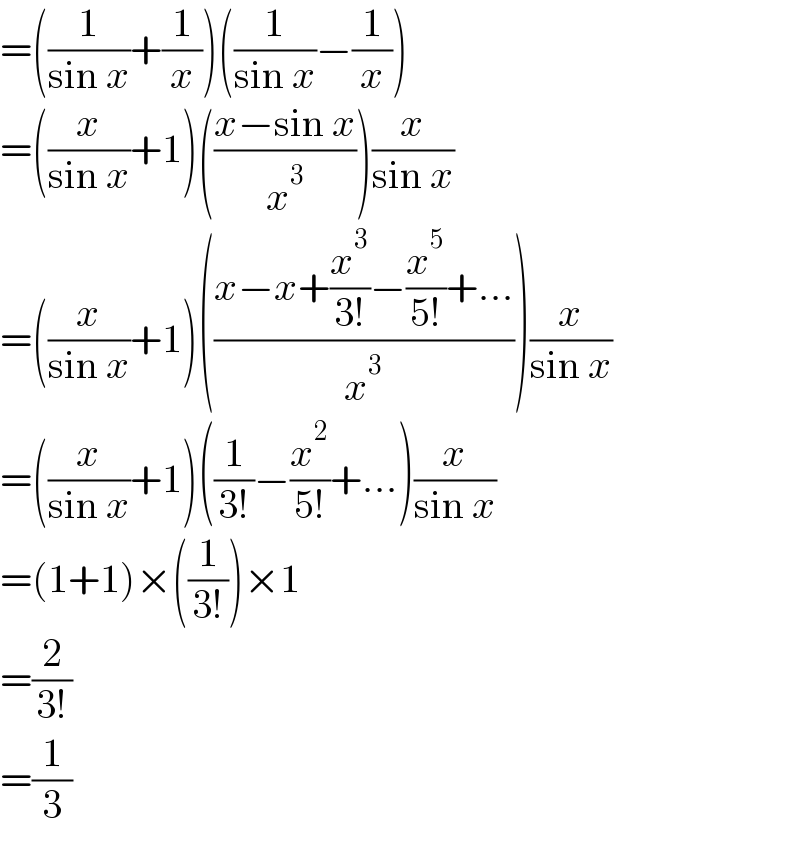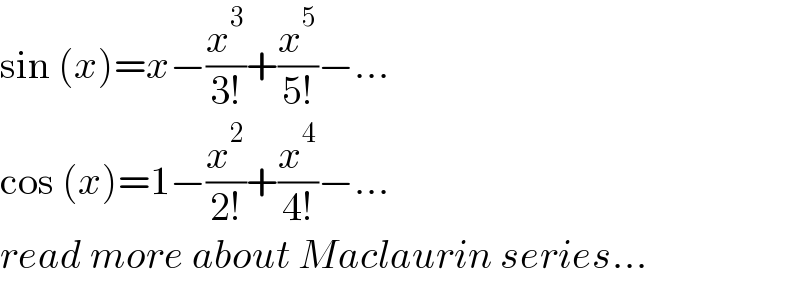
Question and Answers Forum
Question Number 170141 by sciencestudent last updated on 17/May/22

Commented by mr W last updated on 17/May/22

Commented by sciencestudent last updated on 17/May/22

Commented by mr W last updated on 17/May/22

Answered by ajfour last updated on 17/May/22
![l=lim_(x→0) ((2/(1−cos 2x))−(1/x^2 )) =lim_(x→0) ((2/(1−[1−((4x^2 )/(2!))+((16x^4 )/(4!))−..]))−(1/x^2 )) =lim_(x→0) (1/x^2 )((/(1−((1x^2 )/3)+sx^4 −..))−1) =lim_(x→0) ((((1/3)−sx^2 +...)/(1−(x^2 /3)+sx^4 −...)))=(1/3)](Q170145.png)
Commented by sciencestudent last updated on 17/May/22

Commented by mr W last updated on 17/May/22

Commented by mr W last updated on 17/May/22

